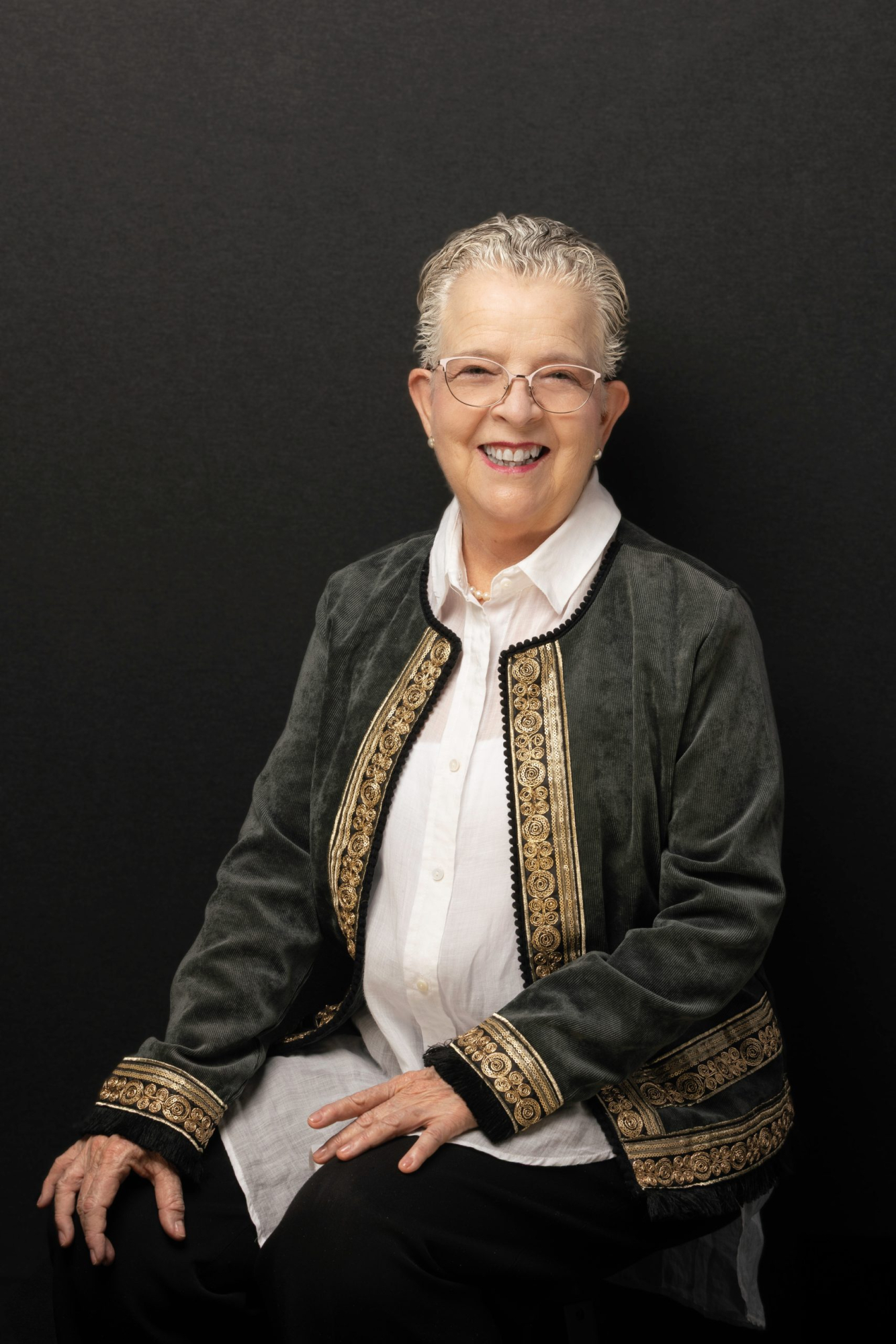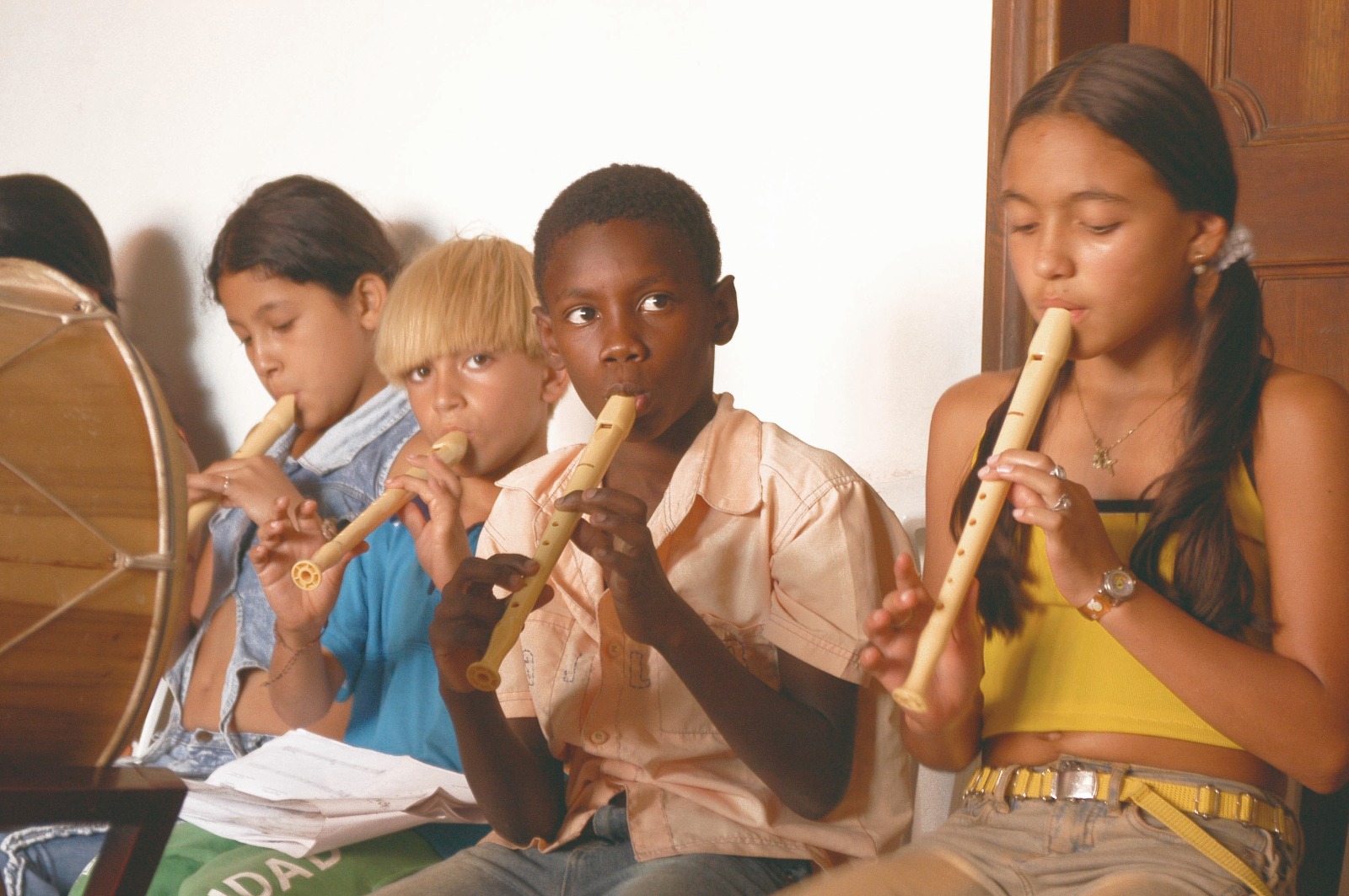'The government's new approach cuts more than 50% of Batuta's budget,' says the foundation's president.

The Batuta Foundation launched its national campaign to raise funds and continue transforming lives through music.
Called "Colombia Embraces," the strategy seeks to raise 3 billion pesos by October 2025. These funds will guarantee the basic operations of the entity, keep music centers running, and respond to the high demand for training programs in the areas that need them most.
Lucía González Duque, president of Batuta, explains the scope of the campaign and points out that it is a key mechanism not only to continue supporting people in rural, urban, Indigenous, and Afro-Colombian territories—many of them in communities affected by poverty, armed conflict, or institutional neglect— but also to sustain the foundation, which is experiencing a complex situation of stability due to a lack of resources.

Lucía González Duque, director of the Batuta Foundation. Photo: Courtesy
At the National Batuta Foundation, we are going through a decisive moment for the organization's sustainability, as we face a readjustment of the funding model that supported a large part of its operations through resources from the National Government. Faced with this situation, we have called for shared responsibility among the various sectors of society. We cannot remain passive in the face of our missionary commitment to educate, care for, and support thousands of children and young people in Colombia's 32 departments through musical and human development.
This is a transition that compels us to diversify our funding sources and strengthen our partnerships. And it's something we embrace with hope, as we've felt a profound response from communities, families, artists, alumni, and allies who have clearly told us: Batuta is important for each of us and for the country. That certainty is what drives us today.
What exactly do the “adjustments in the targeting and distribution of public resources” mean for Batuta? The National Government prioritized a new program for artistic training, which has meant a reduction of more than 50% for Batuta in the budget it normally received through the Ministry of Culture. Therefore, what is at stake is the possibility of continuing to reach the territories where Batuta has, for years, provided a space for care and training for children.
While we joined the Ministry of Culture in the new Arts for Peace program and are working hand in hand with other valuable public and private partners in many other territories, we are actively working on other sustainability initiatives to regain our presence in communities and institutional sustainability. Today, we are talking about 100 Music Centers closed in the most vulnerable communities across the country.
More than a million people have benefited from Batuta in three decades. How would you describe that impact in human terms? When we talk about more than one million beneficiaries, we're not talking about abstract numbers. We're talking about concrete lives that have found in music a possibility for transformation, belonging, and a future. At Batuta, children don't just learn to play an instrument: they find a place where they are seen, heard, and valued. They strengthen their self-esteem, develop emotional and social skills, create bonds with their community, and discover that they have something valuable to contribute.
In contexts where everything is sometimes scarce, Batuta has been a promise fulfilled. Ninety-seven percent of our participants report improvements in their emotional well-being, and 96% express having strengthened their personal capabilities. Many have pursued higher education, others now teach, lead cultural or social processes, or simply navigate life with more confidence. That's the kind of impact we care about: the kind that lasts, even when the music stops playing.

Batuta has been offering support for over 30 years. Photo: Batuta Foundation
I couldn't choose just one story, because what defines Batuta is the collective strength of thousands of transformed paths. What I can say is that, in every part of the country where we operate, we find children, adolescents, and young people who discover in music a real possibility of building a different destiny. For many, Batuta has been the first place where they feel safe, recognized, part of something bigger.
What moves me most is seeing how, in areas deeply affected by exclusion or violence, music manages to create community, a sense of purpose, and a vision for the future. Young people who first came to a workshop or class with fear or silence, today teach, lead, and create. It is in these concrete, visible, and sustained transformations that the true power of what we do at Batuta is seen. And that is why it is worth preserving today.
What do you dream for Batuta in the next five years? I dream of a Batuta that continues to be even stronger, and increasingly closer to the territories that need it. We aspire to maintain and expand a network that articulates public, private, and citizen resources to ensure continuity and presence, and that also serves as a support for other cultural initiatives in the region; strengthens pride in the arts, cultures, and knowledge, and influences the development of citizens for community life.
But beyond funding, I dream that Batuta will continue to be a national benchmark in the use of art for social transformation. That it will continue to demonstrate that music is not a luxury, but a right, and a concrete tool for developing citizenship, protecting life, and building community. My dream is that, in five years, we can look back and say that this moment was a turning point for growing with deeper roots, greater commitment, and greater impact.
How will the funds be raised, that is, how do people donate? We have launched the national campaign "Colombia Embraces Batuta," which seeks to raise 3 billion pesos by October. This campaign is based on a conviction: that a common good, like Batuta, is cared for by all. People can donate from $20,000 through our website www.fundacionbatuta.org, where all available payment methods are available.
In addition to individual contributions, we are calling on businesses, artists, media outlets, and social organizations to join as allies. Because embracing Batuta is not just a metaphor: it's a concrete commitment. When many hands join together, change is possible. And when Colombia embraces Batuta, it embraces childhood, culture, and the future.
Camilo Peña Castaneda - Editor of Today's Life
ANGELA MARÍA PÁEZ RODRÍGUEZ - EL TIEMPO SCHOOL OF MULTIMEDIA JOURNALISM
eltiempo





